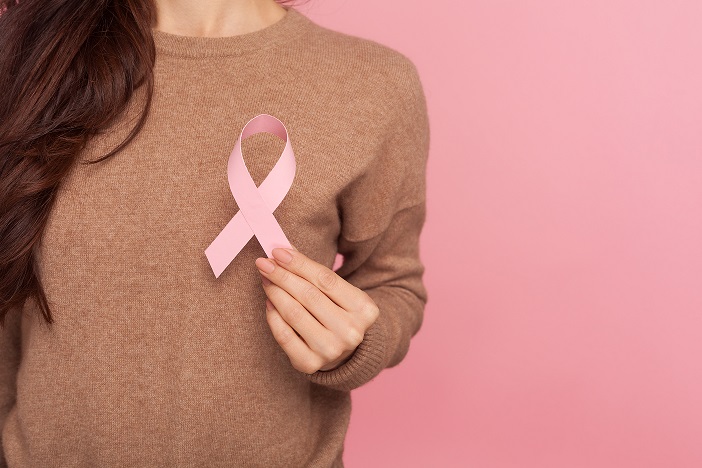October is Breast Cancer Awareness Month and an opportunity to raise awareness, celebrate survivors and support the many cancer charities who provide valuable care and advice to families affected by this disease.
Breast cancer is the most common cancer in the UK and 1 in 7 women will get it in their lifetime with the risk increasing with age. Breast cancer in young women, although not common, is sadly not rare either.
Around 55,000 women and 370 men are diagnosed with breast cancer every year in the UK. Every year, in England, around 46,000 people are diagnosed with breast cancer.
In April 2020, a new ‘faster diagnosis standard’ was introduced, and in March 2021 the target was set which states that 75% of patients should be told whether or not they have cancer within 28 days of an urgent referral from their GP or a cancer screening programme.
However, breast screening programmes were paused in March 2020 because of Covid-19. Screening restarted in the summer of 2020. During this time, it is estimated that almost 1.5 million fewer women in the UK had breast screening, compared to pre-pandemic levels.
What effect could this have on diagnosing breast cancer?
Breast screening can pick up cancers early before there are any noticeable signs and symptoms.
The sooner breast cancer is diagnosed, the more successful treatment is likely to be. It is estimated that around 12,000 people in the UK could be living with undiagnosed breast cancer due to the impact of the pandemic on breast screening services and fewer women being referred to specialists.

If you have still not been invited for a screening, what should you do?
If you were due to attend breast screening at any point from March 2020, you should have received another invitation. If not, contact your local screening service on the NHS website ASAP.
In England, breast screening is offered to women over the age of 50, up until they turn 71. Most women are invited for their first screening between their 50th and 53rd birthday but those in high-risk categories may be seen earlier. If you cannot attend, make sure that you cancel and re-arrange, as this will ensure that the appointment can be used by someone else.
Compensation Claims
Mistakes can be made when treating or diagnosing breast cancer. If you believe you have suffered as a result of medical negligence, then you might be looking into making a claim for compensation.
Getting your life back on track can be made easier with financial compensation and pursuing a clinical negligence claim correctly is important for improving your chances of success and maximising your pay out.
For an honest, professional review of your circumstances, please contact one of our experienced team of Clinical Negligence Lawyers at Lamb Brooks. Call the team on 01256 844888, email enquiries@lambbrooks.com or speak to our online chat assistant who can take some basic details and arrange a call back.
Other Articles You May Be Interested in Reading:
Making a Hospital Complaint & When to Take it Further
6 Signs That You Have a Medical Negligence Claim
“Its Not About the Money” Getting Justice After Negligence
The contents of this article are for the purposes of general awareness only. They do not purport to constitute legal or professional advice. The law may have changed since this article was published. Readers should not act on the basis of the information included and should take appropriate professional advice upon their own particular circumstances.
